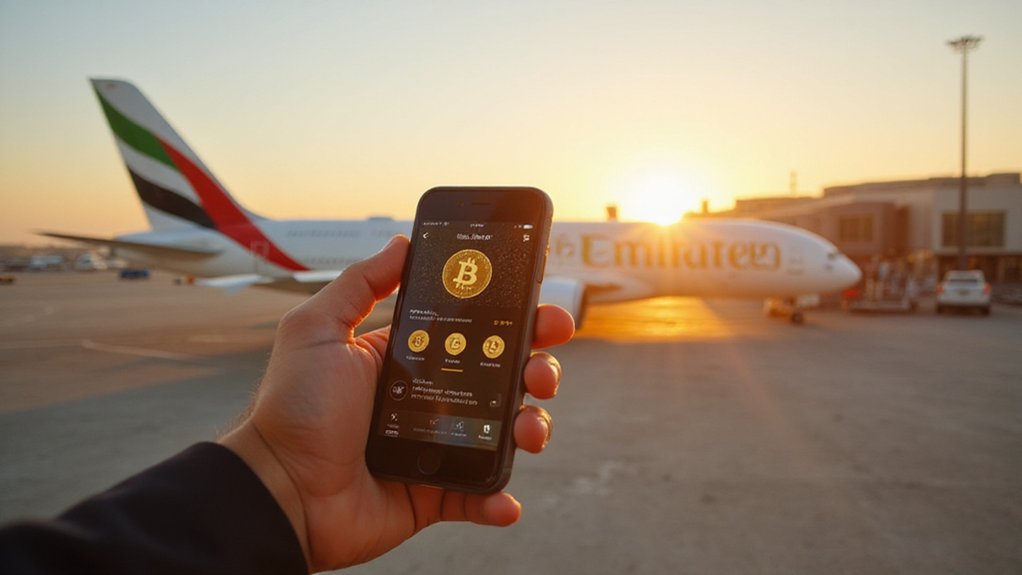While most airlines grapple with the mundane complexities of fuel hedging and seat configurations, Emirates has decided to tackle an entirely different sort of volatility by announcing a partnership with Crypto.com that will allow passengers to book flights using cryptocurrency—though, in a move that suggests the carrier’s executives possess at least some institutional memory of financial prudence, these digital payments will be instantly converted to UAE dirhams rather than adorning the airline’s balance sheet with the price gyrations that make Bitcoin charts resemble seismograph readings during earthquakes.
The memorandum of understanding, signed in July 2025 with implementation scheduled for the fourth quarter, represents more than corporate experimentation with trendy payment methods. Emirates anticipates that cryptocurrency acceptance could boost booking volumes by over 40 percent while generating 30 percent higher average order values from crypto-paying customers—metrics that transform what might appear as Silicon Valley posturing into legitimate revenue strategy.
The technical architecture reveals careful risk management: Crypto.com’s infrastructure handles regulatory compliance and fraud mitigation while converting digital assets to local currency at real-time exchange rates. This approach allows Emirates to capture the demographic appeal of cryptocurrency without exposing itself to the asset class’s notorious price volatility, a balance that demonstrates sophisticated understanding of both opportunity and peril in digital finance. Given the substantial risks involved, Emirates’ decision to avoid holding cryptocurrency directly mirrors recommendations that hardware wallets like Ledger Stax be used for securing significant digital asset holdings rather than relying on less secure alternatives.
The partnership aligns with Dubai’s broader ambitions to establish itself as a global fintech hub, following Crypto.com’s 2023 collaboration with Dubai Finance that enabled cryptocurrency payments for government fees. Emirates’ move targets younger, tech-savvy travelers who prefer digital currencies over traditional payment methods, suggesting the airline recognizes shifting consumer preferences rather than merely chasing headlines. The initiative builds upon Dubai’s positioning as a global cryptocurrency hub, supported by numerous local companies already accepting digital payments including real estate developers and major telecom companies.
The regulatory framework emphasizes compliance through immediate currency conversion, transparency measures, and anti-fraud protocols—considerations that reflect lessons learned from cryptocurrency’s tumultuous regulatory journey.
Whether this initiative proves transformative or merely expensive marketing remains to be seen, but Emirates’ approach suggests they’ve absorbed the cardinal rule of cryptocurrency adoption: embrace the technology’s benefits while avoiding its balance sheet risks, leaving the price speculation to those with stronger stomachs for financial adventure.









